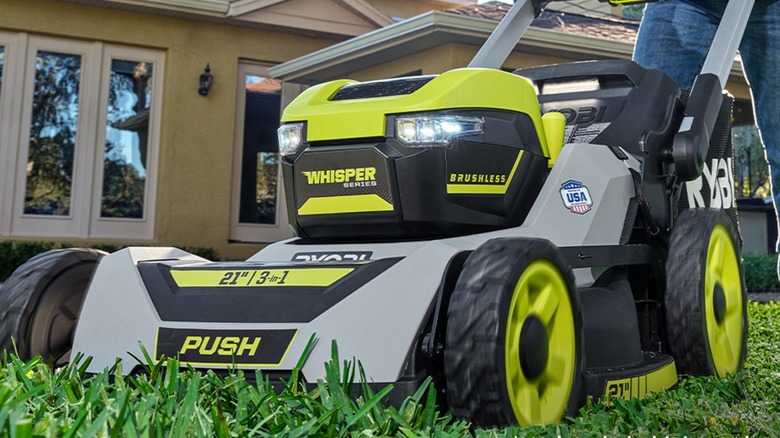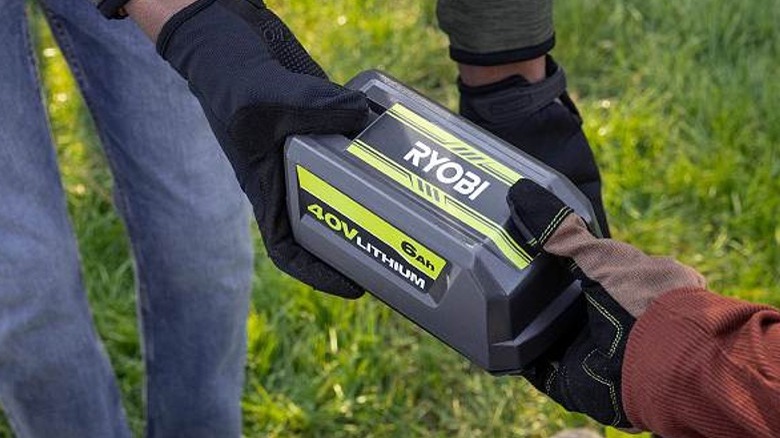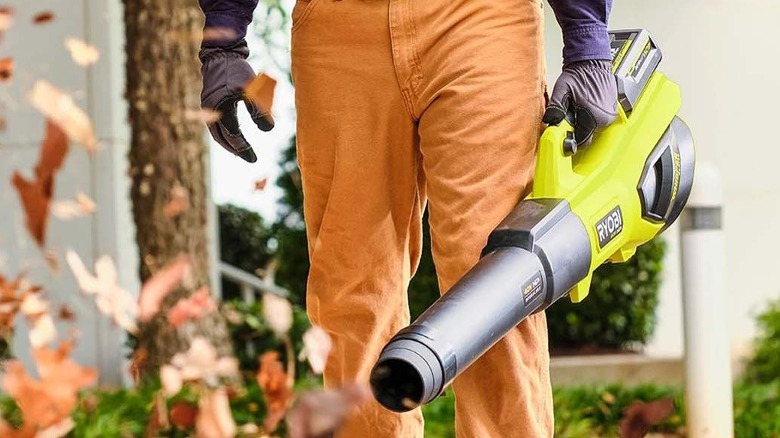Are Ryobi 40V And 40V HP Batteries Interchangeable? Compatibility Explained
Cordless tools have grown increasingly popular over the years as rechargeable lithium-ion battery technology has improved. These batteries can be a bit on the expensive side, but one of the major benefits of going the cordless route is that you can usually use them across all cordless tools of the same brand, so long as they require the same voltage. This is one reason why many craftspeople choose to pick a single brand and stick with it.
Many people consider Ryobi one of the best power tool brands on the market. The Home Depot-affiliated brand is more affordable than most of its name-brand competitors and, while there might be some companies that make more powerful tools, Ryobi is famous for its price-to-performance ratio. Its One + battery system is also considered one of the most trusted lithium-ion systems for power tools on the market.
There are several different kinds of One+ batteries, however. The 18V series is primarily used on tools that require less power, such as drills and handheld power saws, while the larger, more energy-hungry tools operate on Ryobi's 40V batteries. There are, however, two different types of 40V batteries: the regular 40V and the 40V HP. Those looking to invest in this system will probably want to know the difference between those batteries and whether they are interchangeable.
What is the difference between Ryobi 40V and 40V HP batteries?
Voltage (V) is a unit of measurement that is used to express the maximum amount of power a battery cell can generate under ideal conditions. This isn't to be confused with amp-hours (Ah), which determines how long a battery holds its charge while in operation. Ryobi's regular 40V batteries are designed for use in more power-hungry tools, such as lawnmowers, cultivators, and chainsaws. The tools operated by these batteries, "deliver superior runtime and performance that provide freedom from gas-powered lawn and garden equipment," says Ryobi.
The 40V HP system is newer. The HP stands for High Performance, and while Ryobi has provided very little information about the actual engineering differences between the two types of 40V batteries, the 40V HP web description states that tools using this system will "deliver superior power, performance and run time. These tools utilize our most Advanced Technologies to deliver GAS-LIKE POWER with fade-free, long-lasting performance." This implies that the 40V HP batteries consistently perform with an output that is closer to the 40V cell's maximum energy potential and has fewer dips in power than the standard units.
Can you use Ryobi 40V and 40V HP batteries in the same tools?
Now that you know HP batteries are better than the regular 40V ones, you might be interested in learning which tools they're compatible with. This can be a little confusing since many of Ryobi's tools are explicitly labeled as 40V HP products, making it seem as though they need those batteries to function. This doesn't appear to be the case, however.
Ryobi's description of the regular 40V batteries states that "There are now over 85 innovative products in the 40V platform that can be powered by any RYOBI 40V lithium-ion battery." The word "any" indicates that it includes the HP batteries. If that wasn't evidence enough, the HP description states it is "Part of the Ryobi 40V System" and that "40V HP tools and their batteries are compatible with over 85 RYOBI 40V tools."
It may be that the HP-designated tools have built-in technology, such as Ryobi's brushless motors, that allows them to interact with 40V HP batteries more efficiently than regular 40V-branded tools, but it appears that the batteries are entirely interchangeable. This means you should be able to use your old 40V tools with the new 40V HP batteries and vice-versa. Just don't expect the performance to be exactly the same.


